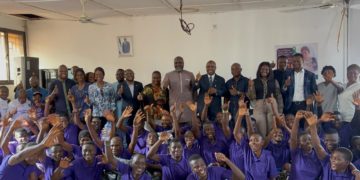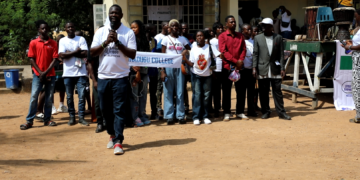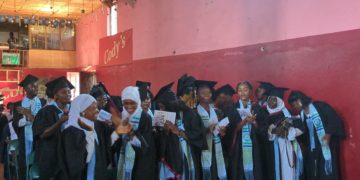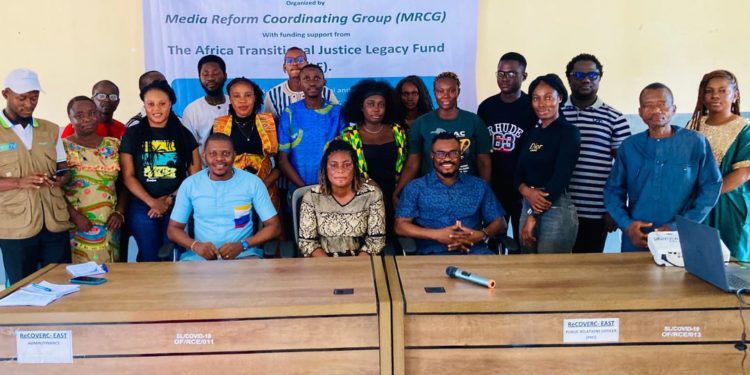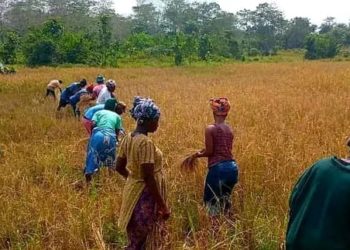By Brima Sannoh in Kenema
The Media Reform Coordinating Group Sierra Leone (MRCG-SL) on Friday, September 20th conducted a training for journalists from the southeastern region on reporting Transitional Justice issues.
The training held at the District Health Management Team (DHMT) conference Hall on Maxwell Khobe Street in Kenema City brought together more than 30 journalists from various media platforms in the seven districts of the region.
The organizers said the training is part of the “Engaging the Media and Communities to Change the Narrative on Transitional Justice Issues in Sierra Leone project, which is funded by the Africa Transitional Justice Legacy Fund (ATJLF).
The project is implemented in two components: training of Journalists and producing media stories on Transitional Justice issues.
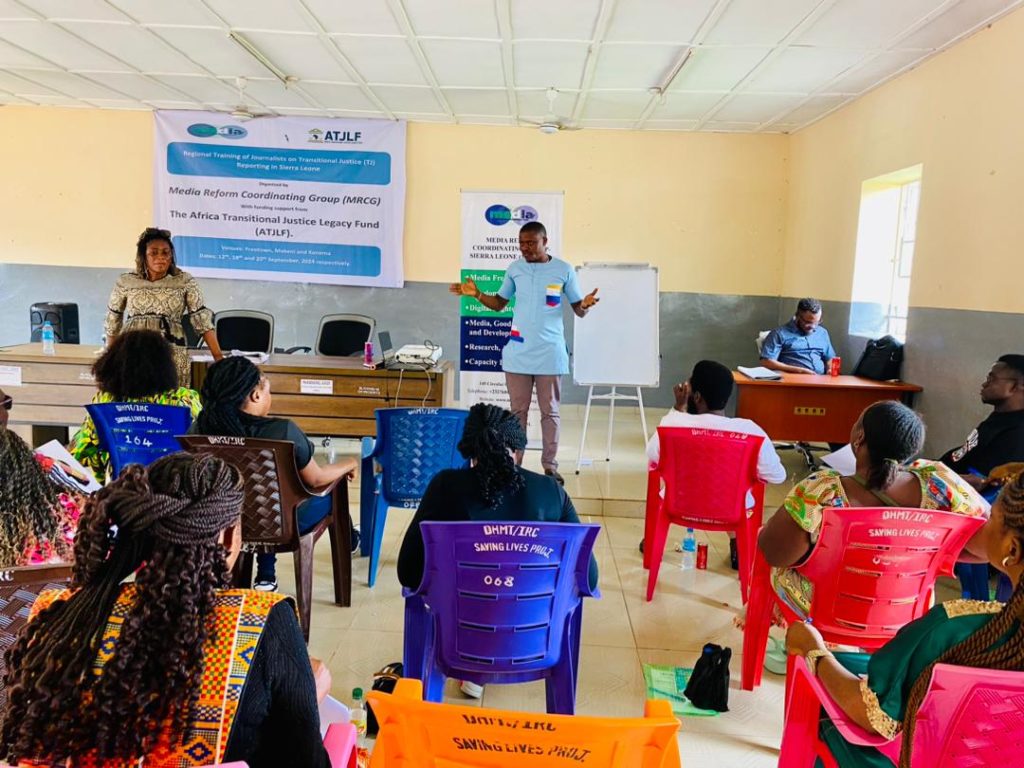
MRCG-SL was established to strengthen democratic dialogue, consolidate peace and ensure development through professional, independent and sustainable media, based on the right to freedom of expression and speech. Its National Coordinator, Dr. Francis Sowa, said the training was a continuation of the project implemented in previous years, in collaboration with institutions like the Sierra Leone Association of Journalists and the Sierra Leone Reporters Union (SLRU), with the goal of building the capacity of journalists, thereby encouraging specialized reporting.
Transitional Justice is associated with periods of political change, characterised by legal responses to confront the wrongdoings of repressive predecessor regimes. It places focus on victims, with the goal of guaranteeing their rights and dignity as citizens and human beings and ensure accountability, acknowledgement and redress for the harms they suffer.
TJ also aims to provide recognition and reparation to victims of human rights violations, and promote the rule of law as a step towards avoiding the recurrence of serious violations of international law and enabling sustainable peace, justice, truth and accountability, which are crucial to addressing and redressing risk factors for the commission of atrocious crimes.
Sierra Leone went through one of the worst civil conflicts in human history (1991-2002), according to reports. An estimated 50,000 people died, with hundreds of thousands more affected by the violence and some two million people displaced. Thousands were maimed.
In 2002, the Truth and Reconciliation Commission (TRC) was established to find out the truth about the war and make recommendations to ensure it never happen again.
The TRC recommendations led to the setting up of the Special Court for Sierra Leone, as the main transitional justice mechanism, with the aim of trying those who committed the worst forms of violations.
Chapter 5, paragraph 1 of page 76 of the TRC report clearly indicates that all of the warring factions perpetuated deliberate violence against women and girls, being the most vulnerable groups during the war.
It further revealed that the victims suffered from abductions and exploitation at the hands of the perpetrators. They were mutilated, raped, tortured, forced into sexual slavery and made to suffer acts of extreme sexual violence and a host of other cruel and inhumane acts.
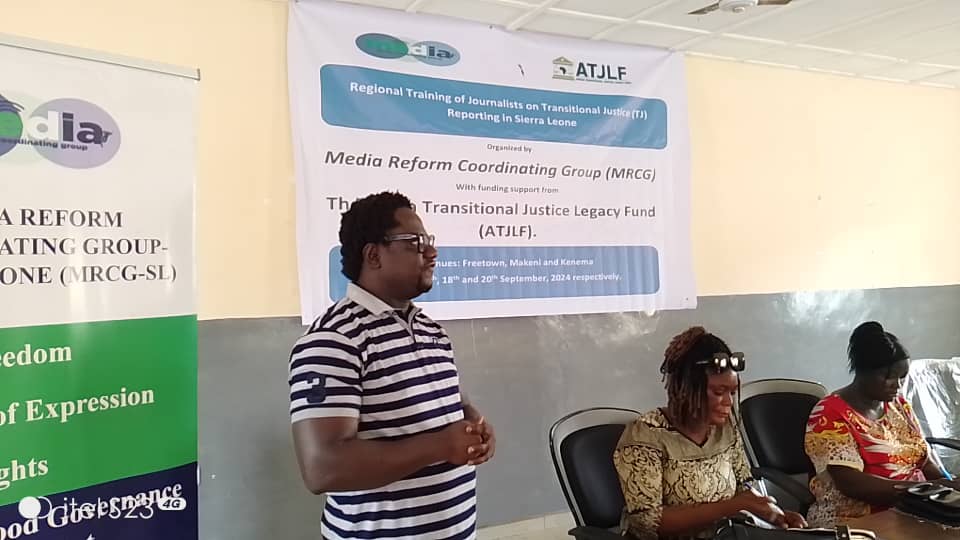
According to Dr Sowa, the major arguments his organization has been making in the transitional justice project is that after the war ended, there were a lot of discussions but it came to a point that the nation stopped talking about them.
Sowa told ManoReporters that issues of transitional justice live with people as a nation on a daily basis, citing the recently released Tripate Committee report which contained many transitional justice issues.
The Kenema training brought to 66 the total number of journalists that have gone through this training, from all regions of the country, between September 12th and 20th.
“This is the last for the series of training in year one of the project. In year two, another set of journalists will be trained basically to build their capacity for reporting on the issue of transitional justice…,” Dr. Sowa stated.
He cautioned the participants to make a very good use of the knowledge gained during the training.
“This is not an activity. Those of you who were selected for this training should see it as a process. When it comes to selecting those journalists who will be part of the mentorship for one year, of course the mentorship comes with benefits. Those who are going to be fortunate will know about the benefits,” he said.
“I hope that the support the Africa Transitional Justice Legacy Fund has given to us, we’ll all take it seriously so that at the end of the day we’ll see increased reportage on issues of transitional justice in Sierra Leone,” he noted.
The level of knowledge about transitional justice issues among the Sierra Leonean population has been described as low, even among the elites. The majority of the journalists who attended the training in Kenema admitted that it was their first time hearing about the concept.
Andrew Batilo Francis, Head of Programmes for Gola Agriculture Radio in Kenema, was more than delighted to have been part of the session. Francis said he acquired new ideas on some issues Sierra Leone has been battling with.
“I believe that I am now better prepared to report on issues of transitional justice in my district based on the capacity building the MRCG has provided for us,” he stated, calling for more such opportunities.
For Kadiatu Sia Komba from People’s Radio in Kono District, it was a golden opportunity to attend such a training. She told ManoReporters that she’ll try as much as possible to cascade share the knowledge she gained with fellow journalists in the district.
“In fact I will try as hard as possible to convince my boss in order to have a special radio program on Transitional Justice on our radio, where we’ll have human rights groups and experts come and provide awareness messages to the people,” she said.



